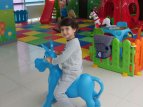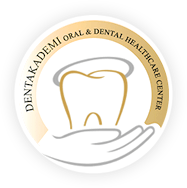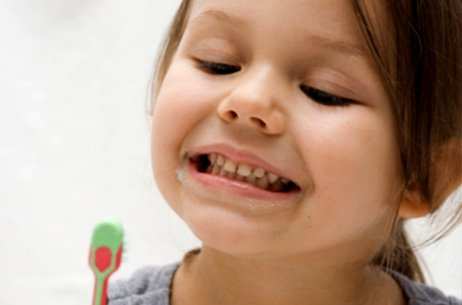
What is pedodontıcs?
It is a branch of dentistry aimed at solving problems related to the protection of mouth and dental health, caries, trauma, genetic causes of 0-13 age group children.
Create an Appointment Consult with Baris Akbulut
Our little heroes have fun at Pediatric Dentistry and have their treatment done.
HAKAN playing field with his brother Altay 
DURU enjoys the playground 
NİL Deniz came to visit our clinic 
DEREN BEBEK On the Playground of Our Center 
HAKAN playing at our Center 
The teeth of a newborn baby are hidden under the gingiva. When the baby arrives at the sixth month, the teeth start to erupt themselves and become visible on the gingiva. This process can vary from baby to baby. First emerging teeth are two front teeth at the lower maxilla. Then with four teeth from the front of the upper maxilla two front teeth of the lower maxilla erupt. When the baby reaches the age of 3, there are 20 milk teeth arranged intermittently in the mouth. Gaps between milk teeth become important during tooth replacement. The gaps create enough space to erupt for the continuous tooth that they are larger in size. In addition, these gaps between the teeth facilitate the child’s teeth cleaning.
Why is milk teeth important?
The fact that the milk teeth will leave their places to the permanent teeth over time does not mean that daily routine cleaning and routine physician checks will be ignored. The protection and care of the milk teeth is very important because they help the child to bite and chew the food, to look sympathetic, to speak properly, to maintain the place for the permanent teeth, and to locate the permanent teeth.
How should dental care be done in babies and children?
In four teething babies in both maxillas, you can brush the teeth twice a day with the help of a soft toothbrush.
You can use fluoride toothpastes specially produced for children to care for milk teeth. In case of using special fluoride paste, the amount of putty on the brush should not exceed the size of the chickpeas. Another way is to brush the teeth with water only.
Children will prefer to swallow the toothpaste used during toothbrushing. Too much fluoridin ingestion in children can lead to cosmetic problems (fluorosis) in permanent teeth. For this reason, it should be shown and taught that children should spit instead of swallowing toothpaste during toothbrushing. Toothless areas should be wiped with a sterile gauze or a clean piece of cotton. The moment that your child’s teeth begin to touch each other, you need to use the dental floss once a day.
Until the age of 8, the child does not have the hand coordination and skill necessary to brush his/her teeth properly. For this reason, allow your child to brush their teeth without forgetting that you are responsible for oral hygiene.[/vc_column_text]
What is Baby bottle tooth decay?
Baby bottle decay is a bruise that can quickly destroy your baby’s teeth. It is possible to protect from this situation. Bottle decays arise when your baby’s teeth are long-lasting with sugar from carbohydrates. When a carbohydrate fluid such as fruit juice and milk is left in the mouth, the bacteria start to feed on sugars. Thus, bacteria produce acid, and if they have enough time in the mouth, they start to bruise the teeth.
Permanent teeth
When your child is 6-7 years old his/her milk teeth fall, permanent teeth start to erupt. This process may be a little earlier or later. This process may vary due to each child’s inherited characteristics. Symmetry or sequencing of newly emerging teeth is more important than when the teeth erupt. The permanent teeth, which usually appear first in the mouth, are the lower front teeth.
Maintenance of permanent teeth
 Your child needs your help with toothbrushing until 6-8 years of age. You should help your child brush your teeth at least twice a day, in the morning and just before bedtime. You should be careful not to leave food stains on the teeth (especially the big grinders). The recesses and protrusions on the big molar teeth are the surfaces that allow the residues to be held. It is important that what your child eats for dental health, when, and how often he eats. Balanced nutrition is important for long-term dental health (appropriately developed teeth and healthy gingiva).
Your child needs your help with toothbrushing until 6-8 years of age. You should help your child brush your teeth at least twice a day, in the morning and just before bedtime. You should be careful not to leave food stains on the teeth (especially the big grinders). The recesses and protrusions on the big molar teeth are the surfaces that allow the residues to be held. It is important that what your child eats for dental health, when, and how often he eats. Balanced nutrition is important for long-term dental health (appropriately developed teeth and healthy gingiva).
Carbohydrate foods cause tooth decay in the mouth or on the teeth for long periods of time. Bacteria in the mouth are fed with these carbohydrates to form acid. The acid acts on the enamel layer of the tooth and initiates the formation of decays. Frequent eating habits cause the mouth to become acidic and become susceptible to tooth decay. Give your child healthy foods such as fresh fruit, vegetables or cheese for snacking.
• Be sure to eat foods that do not contain sugar.
• Take care to eat sugary or starchy foods after meals.
• Keep your child away from food sticking to their teeth. These foods can escape into the teeth even when the teeth are scrubbed and can be held in the indentations on the tooth surfaces. Creamy cookies, figs, krokan, oatmeal cookies, peanut biscuits, plain buns, potato chips and crackers are the foods that should be avoided.
• Frequent eating habits increase the amount of acid in the mouth and damage the teeth.
• Make sure the child brushes his/her teeth after dinner. If this is not possible, rinse her/his mouth several times with water.
• Provide your child to chew sugarless gum or containing xylitol gums.
• Do not give milk, juice or acidic drinks to your child just before go to bed.



